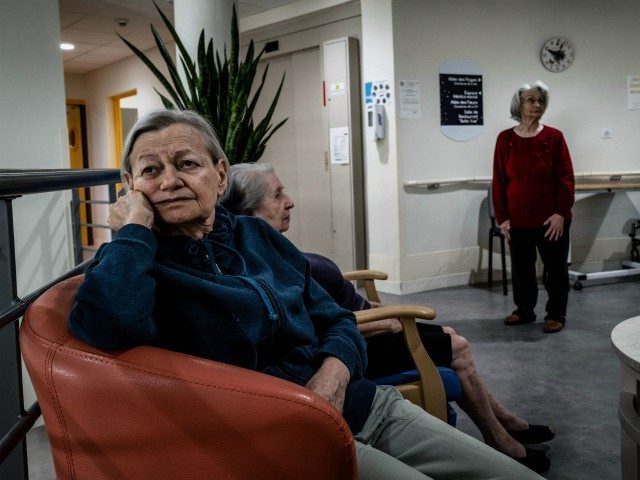The UK’s health and social care watchdog has opened an inquiry into claims that seniors’ care homes were placing blanket do not resuscitate (DNR) orders on residents during the height of the coronavirus pandemic.
Dr Rosie Benneyworth from the Care Quality Commission (CQC) said that it was initiating the investigate “at pace” and that the review “builds on the concerns we reported earlier in the year”.
“Along with partners, we have been clear that it is unacceptable for advance care plans, with or without DNAR form completion, to be applied to groups of people of any description. These decisions must continue to be made on an individual basis according to need,” Dr Benneyworth said, according to a Telegraph report from Monday.
The review was also prompted by the charity, Compassion In Dying, which said that since March, it had heard of Do Not Attempt Resuscitation (DNAR) and Do Not Attempt Cardiopulmonary Resuscitation (DNACPR) tags being put on patients’ files without consent, based solely on certain characteristics such as age or healthcare status. More than 18,000 residents of care homes have died of or are suspected of having died of the Chinese coronavirus.
Breitbart London reported in April of cases where local general practitioner surgeries were reportedly pressuring elderly and ill people to sign DNACPRs in case they caught coronavirus. One surgery in Wales told patients that they could place added pressure on ambulance services and put first responders at risk of catching coronavirus if they did not sign away their right to life-saving intervention.
Llynfi surgery had also told seriously ill patients that if they caught COVID-19, they were “unlikely to be offered hospital admission” and “certainly will not be offered a ventilator bed”. The surgery then asked those patients permission to fill out a DNACPR form for them.
Delingpole: Killing the Elderly In Care Homes to Save the NHS. Nice Work, Boris! https://t.co/r85p6p9qPz
— Breitbart London (@BreitbartLondon) May 19, 2020
Charities also reported early that month of “shocking examples” across the country of the ill, vulnerable, and elderly “who have felt pressurised into signing Do Not Attempt CPR forms”. A care home in Bury, Manchester, said that GPs added DNRs to their patients’ files without theirs or their next of kin’s knowledge or consent.
There were also reports of local NHS authorities telling GPs in Brighton and Hove in southern England that elderly patients may not be admitted to hospitals if they have coronavirus and to ask care homes if DNRs are in place.
The NHS also targetted ill children and autistic people. The parents of two children aged 11 and 16 with serious conditions were reportedly asked if they wanted to sign DNRs in case they caught the virus. While a GP surgery in Somerset sent a letter to an autistic support group saying that its members should also have DNRs put in place.
A report from August revealed that the National Health Service had told ten per cent of care home managers to put the orders on their patients’ files.
The NHS also left millions waiting for cancer treatment or screening after appointments were cancelled because of the pandemic. The BBC reported in June that of the 2.4 million Britons affected, 2.1 million missed out on screening while 290,000 with potential symptoms were not screened; the report assessed that as a result of the lockdown, 23,000 people might not have had cancer diagnoses when they should have.
Police Investigate Deaths of 42 Babies, Three Mothers at NHS Scandal Hospital https://t.co/aiqWFJmnDZ
— Breitbart London (@BreitbartLondon) July 2, 2020
It was estimated in September that nearly one million women across the UK missed out on breast cancer screening. The Daily Mail reported on Sunday that health chiefs continue to bar women over 70 from requesting breast cancer screening due to the backlog. While women over 70 do not receive invitations for screening, the NHS still encourages women over that age to request the check every three years.
The government’s Scientific Advisory Group for Emergencies (Sage) revealed in a report last month that nearly 75,000 people could die in five years from non-COVID-related illnesses as a result of the lockdown. To date, just under 43,000 have died 28 days after receiving a positive coronavirus result, according to government figures.
According to the Sage report, 16,000 died in March and April directly due to the upheaval at hospitals and care homes. An estimated 26,000 more are predicted to die in the next year if the chaos at elderly homes persists and people stay away from accident and emergency services that they should otherwise be encouraged to use, according to the Daily Mail. Nearly 32,000 could die in the next five years from missed cancer diagnoses and surgeries as well as from the health issues associated with living under a recession.
Socialised Medicine: UK Care Homes Were Given ‘Do Not Resuscitate’ Orders at Height of #Coronavirus Pandemic https://t.co/WCg4awEEmH
— Breitbart London (@BreitbartLondon) August 24, 2020

COMMENTS
Please let us know if you're having issues with commenting.